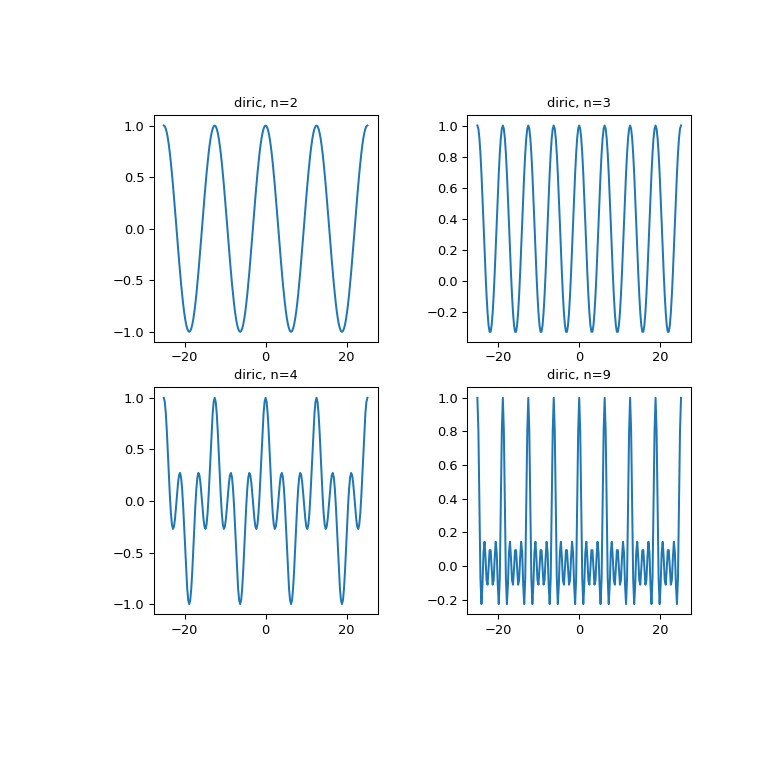scipy.special.
diric#
- scipy.special.diric(x, n)[源代码][源代码]#
周期性 sinc 函数,也称为 Dirichlet 函数。
Dirichlet 函数定义如下:
diric(x, n) = sin(x * n/2) / (n * sin(x / 2)),
其中 n 是一个正整数。
- 参数:
- xarray_like
输入数据
- n整数
定义周期性的整数。
- 返回:
- diricndarray
示例
>>> import numpy as np >>> from scipy import special >>> import matplotlib.pyplot as plt
>>> x = np.linspace(-8*np.pi, 8*np.pi, num=201) >>> plt.figure(figsize=(8, 8)); >>> for idx, n in enumerate([2, 3, 4, 9]): ... plt.subplot(2, 2, idx+1) ... plt.plot(x, special.diric(x, n)) ... plt.title('diric, n={}'.format(n)) >>> plt.show()

以下示例演示了
diric给出了矩形脉冲傅里叶系数的幅度(模数符号和缩放)。抑制输出实际上为0的值:
>>> np.set_printoptions(suppress=True)
创建一个长度为 m 且包含 k 个 1 的信号 x:
>>> m = 8 >>> k = 3 >>> x = np.zeros(m) >>> x[:k] = 1
使用 FFT 计算 x 的傅里叶变换,并检查系数的幅度:
>>> np.abs(np.fft.fft(x)) array([ 3. , 2.41421356, 1. , 0.41421356, 1. , 0.41421356, 1. , 2.41421356])
现在使用
diric找到相同的值(符号相同)。我们乘以 k 来考虑numpy.fft.fft和diric的不同缩放约定:>>> theta = np.linspace(0, 2*np.pi, m, endpoint=False) >>> k * special.diric(theta, k) array([ 3. , 2.41421356, 1. , -0.41421356, -1. , -0.41421356, 1. , 2.41421356])